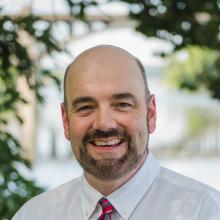Working with Trauma Exposure in First Responders: Recommendations and Considerations of Treatment Design (Intermediate: Clinical: Best Practices, SUD/MH)
First Responders experience a variety of severe traumatic experiences throughout their careers. Responses to trauma often include excessive use of alcohol, illegal drug use and suicide. PTSD in this population range from 8-32% compared to the general population rate 7-8%, and first responders are more likely to die from suicide than in the line of duty. This training session will provide data and examine lived experience of first responders and provide recommendations for developing an effective treatment approach.
Goals:
- Increase awareness of participants about trauma experienced by first responders
- Share treatment design considerations and recommendations with participants
Training Objectives:
- Provide information on studies and research to help participants have a better understanding of effective treatment methods
- Examine data regarding trauma prevalence in first responders and responses to that trauma
- Identify differences between treating trauma in first responders as opposed to the general population
- Provide suggestions to participants about effective strategies when treating first responders
Speakers

John Houton was born in Philadelphia and was raised in Springfield, PA. He has worked in Social services since 2000, starting with homeless, run-away, and at-risk youth in inner-city Philadelphia. He has lived and worked in Ireland and Lancaster County PA where he trained and focused practice on trauma, attachment, and sexual abuse issues.
John has focused on treatment of addiction and co-occurring disorders in community-based organizations as well as in-patient and out-patient levels of care. He has extensive experience and is passionate about care and treatment of first responders and military personnel. John's focus on community development and collaboration has led to a number of volunteer opportunities and community leadership roles.
John received his Bachelor of Science from Widener University in Chester, PA, Master of Science in Pastoral Counseling and Care at Neumann University in Aston, PA, and PhD. in Clinical Pastoral Mental Health Counseling from Neumann University. He is a Licensed Professional Counselor (LPC) in the Commonwealth of Pennsylvania since 2014, credentialed as a Certified Advanced Alcohol and Drug Counselor (CAADC), and certified as a Substance Abuse Professional (SAP) for the Federal Department of Transportation. John conducts trainings, consultations, and workshops for other treatment providers and community organizations throughout the Mid-Atlantic states and is passionate about improving communities and helping families heal through best treatment practices and care.